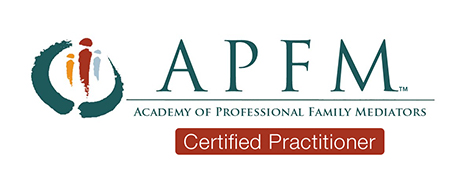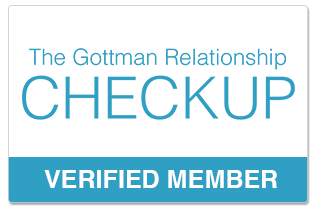Frequently Asked Questions About Mediation
Mediation is a fast, economical, private way to resolve disputes.
It’s a process in which the parties involved and a trained, impartial mediator explore issues and generate options which lead to the creation of solutions which will work for all parties.
Mediation focuses on planning the future, rather than concentrating on the past. Guilt and innocence are not decided. The goal is to develop a solution which meets the needs of all the participants.
The American Bar Association offers an informative online brochure on Preparing for Family Mediation. More information on both Family and General Mediation below.
What Happens in Mediation?
During the mediation process, each person is given an opportunity to describe the situation from their own point of view. Trained mediators then guide the discussion, defining issues, so that everyone is solving the same problem and developing creative solutions which best satisfy the needs of all parties. When agreement is reached, the mediator puts the agreement in writing and a signed copy is given to each person.
Why Mediation Works
Reaching agreement is voluntary. Those involved in the dispute are committed to settling their differences. Also, the outcome is created by the disputants and people honor agreements that they create.
How Much Does Mediation Cost?
Please click here to view the fee schedule.
How May I Pay for Mediation?
Payment is accepted via your personal secure client portal through Simple Practice, a HIPAA compliant program with all major credit cards, cashier's check or by cash. All payments will be collected before your mediation date.
Types of Mediation:
- Neighbors
- Friends
- Relatives
- Parent's Estate Division Amongst Siblings
- Prenuptial Agreements
- Divorce Decree Negotations Through Mediated Settlement Agreements
- Divorce Modification
- Separation
- Guardianship
- Child Custody
- Child Visitation
- Child Support
- Probate Disputes
- Business
- Landlord / Tenant
- Employment / Employee
- Merchant / Consumer
Who Can Take Part?
People can participate in mediation by referring themselves or by having a court order them to attend. Regardless of the referral source, the outcome of mediation always rests in the hands of the parties in the dispute. No solution is ever forced on the parties.
It is The Family Relationship Center's policy to allow only named parties and if needed, the attorney of record, to be in mediation sessions. Additional persons may wait in the hall in the event that they are needed for input during the mediation.
Is it Necessary to Have An Attorney?
No, it is not necessary to have an attorney.If one or more of the parties has engaged the services of an attorney, please inform The Family Relationship Center if the attorney will attend and contribute to the mediation.
May Children Attend?
The Family Relationship Center does not have facilities or staff to tend to children and children are not allowed in mediation. Parties arriving for mediation with small children will be asked to find a resource or to reset the mediation for a time when child care is available to them.
What Kinds of Issues Can Be Mediated?
Types of issues mediated range from barking dogs in the neighborhood to business/consumer disputes to divorce and custody issues to all types of general civil disputes. The Family Relationship Center mediates some minor criminal matters (like fighting) and does some juvenile restitution mediation. The dispute DOES NOT have to be a law suit in order to be handled by The Family Relationship Center. We try to have people use mediation services before they file a lawsuit!
How Do I Prepare for Divorce Mediation?
A mediator's ability to effectively help you during mediation relies greatly on how promptly, thoroughly and accurately you’ve prepared in advance.
To get a head start preparing for divorce mediation, here's a divorce mediation checklist of documents to begin gathering:
- Tax Returns (Federal & State)
- Pay Stubs
- W-2’s and/or 1099’s
- Partnerships & Other Business Interests Valuation
- Separate Property - any property, gifts, inheritances that were acquired before marriage or during that you can produce ownership receipts.
- Community Property - any assets acquired during marriage
- Real Estate Property Valuation
- Vehicles, Boats, Trailers Valuation
- Savings, Checking, Money Market and CD Accounts
- Non-Retirement Investments such as Stocks, Bonds, Secured Notes, Mutual Funds
- Executive Compensation – Stock Options, RSUs or Other Executive Comp
- Retirement Accounts and Pensions
- Annuities, IRAs, Deferred Compensation
- Life Insurance (Whole Life Policies)
- Jewelry, Antiques, Art, Coin Collections, or Other Property with significant value
- Accounts Receivable & Unsecured Notes
- Real Estate Loans
- Credit Cards and Revolving Credit
- Other Loans and Debts
- Homeowner insurance policy information, auto insurance information, health insurance information, and other information may also be needed
How Do I Schedule A Mediation?
You do not have to have filed a law suit in order to use mediation; you can schedule mediation before filling suit. Please have the name, address and telephone number for each person you wish to include in mediation ready when you contact The Family Relationship Center. We will notify the other parties involved and assist in confirming dates for your mediation.
Please call to schedule your mediation with The Family Relationship Center 832-720-4330, or email us at [email protected] with your mediation conflict.
Who Will Mediate My Dispute?
Rebecca Marsh is a Certified Family and Divorce Mediator and Marriage and Family Therapist. She has unique experience in resolving conflict resolution disputes through her 19 year career working at NASA/Johnson Space Center as a Flight Controller in the Mission Control Center, volunteer mediator at harris county precinct 8 Judge Louie Ditta's court, as well as counseling 1000's of couples and families toward better communication.
What Books/ Website Resources Do You Recommend for Divorce?
- Finances
-
Federal Government Website
The United States Governments official Website
-
Office of Child Support Enforcement
This U.S. Department of Health and Human Services: Administration for Children and Families office is responsible for federal child support enforcement. The mission of this office is to assure that assistance in obtaining support (both financial and medical) is available to children through locating parents, establishing paternity and support obligations, and enforcing those obligations.
-
Social Security and Divorce
The Social Security department offeres help in changing you name after divorce, dealing with how divorce affects your retirement benefits, answers questions about survivors benefits and more.
-
US Department of Labor
The Division of Retirement Benefits Through Qualified Domestic Relations Orders publication that promotes a better understanding of the rights and obligations of those involved in domestic relations proceedings and those responsible for administering retirement plans.























